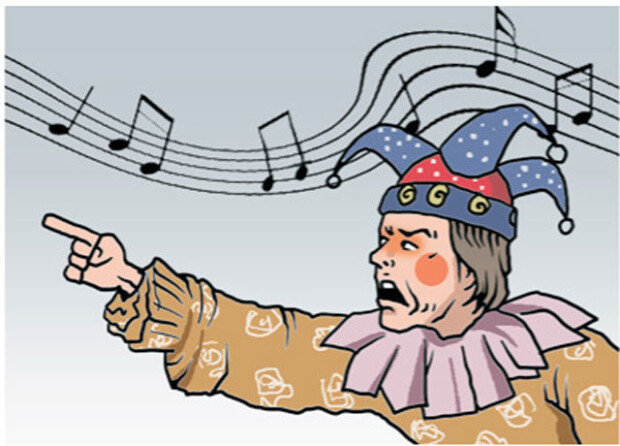Music and vengeance
Music and vengeance
Posted January. 05, 2022 08:00,
Updated January. 05, 2022 08:00

Expressing violence through music is difficult. Fortunately, this is a virtue instead of a setback. Perhaps this is due to the magical powers of music that purifies violence. The aria “Si Vendetta” in Verdi’s opera Rigoletto is true evidence of the magical powers.
The heart of Rigoletto, a court jester, is full of vengeance. He attempts to kill the licentious Duke who has seduced his daughter. “Just like thunder and lightning from the hand of God/ the vengeance of the jester will descend on you” The daughter, however, despite the Duke’s betrayal, pleads for mercy out of love. The father, however, is adamant. His eyes are filled with revenge, hence the duet of vengeance.
However, if one listens to the melody of the song without knowing its background, the song itself, ironically, is full of dynamic energy for life. Perhaps this is due to the imbalance between the songwriter’s intention and actual expression of the music. American philosopher Martha Nussbaum explained the meaning of the imbalance by sharing a personal anecdote. Her daughter was three when she heard the opera. She had no idea of the story of the opera, but she loved the duet because of the joy and vitality of the melody, which is an irony. If Verdi had created an eerie melody of vengeance, he might have been more successful in expressing the intention but would not have won the heart of a three-year-old. If that had happened, the opera would not have been loved by so many people.
As Verdi’s work shows, music is an art genre that holds the treatment for rage, even if the song itself expresses rage. Perhaps that is the reason why music plays a vital role in religion, which stresses love and mercy. People get moved, feel joy or sadness while listening to music, but no one feels vengeance. In an age where hatred and anger are prevalent, music matters.



![“한동훈, 정치생명 걸고 무소속 출마해 평가받는 것 고려할만”[정치를 부탁해]](https://dimg.donga.com/c/138/175/90/1/wps/NEWS/IMAGE/2026/01/19/133186982.1.jpg)


![[한규섭 칼럼]왜 여당 지지율은 떨어지지 않는가](https://dimg.donga.com/c/138/175/90/1/wps/NEWS/IMAGE/2026/01/19/133189257.1.png)
